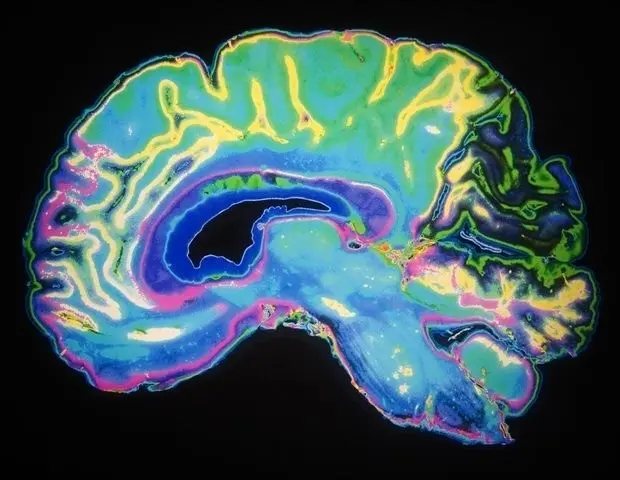AI Application Revolutionizes Endocrine Cancer Diagnosis with High Speed and Accuracy
2 Sources
2 Sources
[1]
Novel AI application diagnoses endocrine cancers with speed and accuracy
The Endocrine SocietyJul 13 2025 A novel artificial intelligence (AI) application capable of diagnosing endocrine cancers with speed and accuracy is being presented Sunday at ENDO 2025, the Endocrine Society's annual meeting in San Francisco, Calif. The research, presented by Jansi Rani Sethuraj, B.S.N., R.N., C.C.R.N., from the University of Texas Health Science Center at Houston, introduces a universally accessible and computationally efficient AI application. This AI application aims to democratize expert-level cancer diagnostics, making them available on basic internet-connected devices, including smartphones. Endocrine cancers, affecting organs such as the thyroid, ovary, pancreas, pituitary, and adrenal glands, pose unique challenges due to their complex hormonal effects and difficult diagnostic profiles. With an estimated 10 million cancer-related deaths each year, the need for innovative, scalable diagnostic solutions is imminent. This new AI-powered tool leverages advanced deep learning architectures, such as EfficientNet and ResNet, to analyze diverse medical data, including computerized tomography (CT) scans, magnetic resonance imaging (MRI), ultrasonography (USG), and histopathology images, enabling comprehensive and accurate cancer detection. According to Sethuraj, the AI models demonstrated exceptional diagnostic accuracy, reportedly exceeding 99% in certain validation datasets across multiple endocrine cancer types. These results align with recent studies showing AI can achieve high accuracy in endocrine tumor classification, though real-world performance may vary. Two researchers, Ramya Elangovan and Kavin Elangovan of AIM Doctor in Houston, Texas, curated anonymized endocrine cancer image datasets representing diverse populations spanning six continents. These images were used to train and validate deep learning models capable of detecting and staging multiple endocrine cancers with very high accuracy. The application's reliability and usability were independently evaluated by healthcare professionals from multiple international institutions, highlighting its potential for global applicability. The application's streamlined design enables rapid image analysis, processing each image in under one second, even on devices with limited computational resources. By enabling clinicians and primary care providers to access expert-level diagnostic support anywhere, this technology has the potential to reduce diagnostic errors, accelerate treatment decisions, and improve patient outcomes globally, especially in resource-limited settings. "By democratizing access to advanced diagnostics, this AI innovation marks a paradigm shift in cancer care, offering hope for earlier detection, more precise treatment, and better survival for patients facing endocrine malignancies," said the chief mentor of this project, Elangovan Krishnan, M.B., B.S., P.G.D.H.M., M.Tech., M.S., Ph.D., of AIM Doctor. "This AI-powered application can deliver fast, reliable, and affordable endocrine cancer diagnostics to anyone, anywhere, thereby helping to close gaps in cancer care and advance health equity worldwide." The Endocrine Society
[2]
AI-powered application enables clinicians to diagnose endocrine cancers faster and more accurately
A novel artificial intelligence (AI) application capable of diagnosing endocrine cancers with speed and accuracy is being presented Sunday at ENDO 2025, the Endocrine Society's annual meeting in San Francisco, Calif. The research, presented by Jansi Rani Sethuraj, B.S.N., R.N., C.C.R.N., from the University of Texas Health Science Center at Houston, introduces a universally accessible and computationally efficient AI application. This AI application aims to democratize expert-level cancer diagnostics, making them available on basic internet-connected devices, including smartphones. Endocrine cancers, affecting organs such as the thyroid, ovary, pancreas, pituitary, and adrenal glands, pose unique challenges due to their complex hormonal effects and difficult diagnostic profiles. With an estimated 10 million cancer-related deaths each year, the need for innovative, scalable diagnostic solutions is imminent. This new AI-powered tool leverages advanced deep learning architectures, such as EfficientNet and ResNet, to analyze diverse medical data, including computerized tomography (CT) scans, magnetic resonance imaging (MRI), ultrasonography (USG), and histopathology images, enabling comprehensive and accurate cancer detection. According to Sethuraj, the AI models demonstrated exceptional diagnostic accuracy, reportedly exceeding 99% in certain validation datasets across multiple endocrine cancer types. These results align with recent studies showing AI can achieve high accuracy in endocrine tumor classification, though real-world performance may vary. Two researchers, Ramya Elangovan and Kavin Elangovan of AIM Doctor in Houston, Texas, curated anonymized endocrine cancer image datasets representing diverse populations spanning six continents. These images were used to train and validate deep learning models capable of detecting and staging multiple endocrine cancers with very high accuracy. The application's reliability and usability were independently evaluated by health care professionals from multiple international institutions, highlighting its potential for global applicability. The application's streamlined design enables rapid image analysis, processing each image in under one second, even on devices with limited computational resources. By enabling clinicians and primary care providers to access expert-level diagnostic support anywhere, this technology has the potential to reduce diagnostic errors, accelerate treatment decisions, and improve patient outcomes globally, especially in resource-limited settings. "By democratizing access to advanced diagnostics, this AI innovation marks a paradigm shift in cancer care, offering hope for earlier detection, more precise treatment, and better survival for patients facing endocrine malignancies," said the chief mentor of this project, Elangovan Krishnan, M.B., B.S., P.G.D.H.M., M.Tech., M.S., Ph.D., of AIM Doctor. "This AI-powered application can deliver fast, reliable, and affordable endocrine cancer diagnostics to anyone, anywhere, thereby helping to close gaps in cancer care and advance health equity worldwide." The study is titled, "A Universally Accessible, Computationally Efficient, Artificial Intelligence Powered Application for Diagnosing Endocrine Cancers," and it will be presented on Sunday, July 13.
Share
Share
Copy Link
A novel AI-powered application for diagnosing endocrine cancers with exceptional speed and accuracy is presented at ENDO 2025, promising to democratize expert-level cancer diagnostics globally.
Groundbreaking AI Application for Endocrine Cancer Diagnosis
A revolutionary artificial intelligence (AI) application capable of diagnosing endocrine cancers with remarkable speed and accuracy was unveiled at ENDO 2025, the Endocrine Society's annual meeting in San Francisco. The research, presented by Jansi Rani Sethuraj from the University of Texas Health Science Center at Houston, introduces a universally accessible and computationally efficient AI tool that aims to democratize expert-level cancer diagnostics
1
2
.
Source: News-Medical
Addressing Challenges in Endocrine Cancer Diagnosis
Endocrine cancers, affecting organs such as the thyroid, ovary, pancreas, pituitary, and adrenal glands, present unique diagnostic challenges due to their complex hormonal effects and difficult diagnostic profiles. With an estimated 10 million cancer-related deaths annually, the need for innovative and scalable diagnostic solutions is critical
1
.Advanced AI Technology and Performance
The AI-powered application leverages advanced deep learning architectures, including EfficientNet and ResNet, to analyze diverse medical data such as CT scans, MRI, ultrasonography, and histopathology images. This comprehensive approach enables accurate cancer detection across multiple endocrine cancer types
1
2
.According to Sethuraj, the AI models demonstrated exceptional diagnostic accuracy, reportedly exceeding 99% in certain validation datasets. While these results align with recent studies showing high accuracy in endocrine tumor classification, it's important to note that real-world performance may vary
1
2
.Development and Validation Process
Researchers Ramya Elangovan and Kavin Elangovan of AIM Doctor in Houston, Texas, curated anonymized endocrine cancer image datasets representing diverse populations from six continents. These images were used to train and validate the deep learning models
1
2
.The application's reliability and usability were independently evaluated by healthcare professionals from multiple international institutions, highlighting its potential for global applicability
1
2
.Efficiency and Accessibility
One of the key features of this AI application is its streamlined design, which enables rapid image analysis. The tool can process each image in under one second, even on devices with limited computational resources. This efficiency makes it accessible on basic internet-connected devices, including smartphones
1
2
.
Source: Medical Xpress
Related Stories
Potential Impact on Global Cancer Care
By enabling clinicians and primary care providers to access expert-level diagnostic support anywhere, this technology has the potential to:
- Reduce diagnostic errors
- Accelerate treatment decisions
- Improve patient outcomes globally, especially in resource-limited settings
Elangovan Krishnan, the chief mentor of this project, emphasized the paradigm shift this AI innovation represents in cancer care. He stated, "This AI-powered application can deliver fast, reliable, and affordable endocrine cancer diagnostics to anyone, anywhere, thereby helping to close gaps in cancer care and advance health equity worldwide"
1
2
.Future Implications
The development of this AI application marks a significant step towards democratizing access to advanced diagnostics. By making expert-level cancer diagnostics available on widely accessible devices, it offers hope for earlier detection, more precise treatment, and improved survival rates for patients facing endocrine malignancies
1
2
.As the technology continues to evolve and be implemented in real-world settings, it will be crucial to monitor its performance and impact on patient outcomes across diverse healthcare environments.
References
Summarized by
Navi
Related Stories
Recent Highlights
1
ByteDance's Seedance 2.0 AI video generator triggers copyright infringement battle with Hollywood
Policy and Regulation

2
Demis Hassabis predicts AGI in 5-8 years, sees new golden era transforming medicine and science
Technology

3
Nvidia and Meta forge massive chip deal as computing power demands reshape AI infrastructure
Technology








